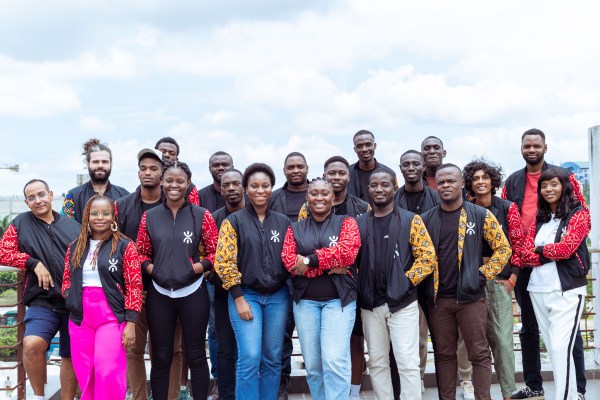ANKA, an Ivorian SaaS e-commerce platform for African businesses, has raised $5 million. The pre-Series A extension round is a mix of equity and debt; last January, ANKA, formerly Afrikrea, raised $6.2 million. The seven-year-old startup has secured $13.5 million from investors since its inception.
In a statement, ANKA said it will use the fresh investment to strengthen product development and expand services, particularly in its key markets: Nigeria, Kenya and the U.S.
ANKA describes itself as an all-in-one SaaS for global African businesses. But until 2021, it operated a marketplace (Afrikrea) for African-based and inspired clothing, accessories, arts, and crafts. At the time, it had served over 7,000 sellers from 47 African countries and thousands of buyers from 170 countries.
According to CEO Moulaye Taboure, the rebranding to a SaaS e-commerce platform was prompted by the need to consolidate merchants’ focus from other channels, such as websites and social media, onto a single platform. As a result, ANKA serves as a one-stop shop for three kinds of users: exporters looking to ship globally, online merchants who use multiple channels and wish to consolidate all orders on a single platform and drop shippers seeking to create jobs, produce and ship from Africa while receiving global payment.
A million active visits and surging revenue
The platform was launched in partnership with Visa and DHL. As such, it was designed to meet the requirements of its customers in e-commerce (ANKA Marketplace), payments (ANKA Pay), and international shipping (ANKA Shipping). The marketplace includes a configurable online storefront and an omnichannel interface where vendors can monitor their sales and inventory across Africa, social media sites, and websites. ANKA Pay enables users to purchase and sell using local payment methods (mobile money, bank transfers, and Visa cards). Then DHL allows users to dispatch packages from Africa to other countries for less than $30 in under 72 hours.
ANKA’s margins and community of African SMEs (small and midsize enterprises) in these 47 countries have nearly doubled since its last capital injection. Last year, the SaaS e-commerce platform claimed to record over 700,000 monthly visits and processed $35 million in transactions. Kadry Diallo, co-founder and chief operating officer, told TechCrunch that these figures have risen to over a million visits and $50 million across 175 countries. Consequently, ANKA claims its turnover soared 18 times, from €200,000 to €3.6 million.
“We have grown in terms of community buyers and sellers since last year. The more our community grows, the more processes have to be efficient. That’s why we raised an extension to strengthen our processes and build teams too,” the COO said, referring to ANKA’s plans to actively recruit sales, technical, and product talent to catalyze its growth.
User demographic
Most of its 20,000+ vendors (80% women) are in Nigeria and Kenya. On the other hand, the U.S. is where a large chunk of its 350,000+ buyers reside. This reflects a familiar e-commerce trend. Nigeria and Kenya are among the top three African countries with the most active e-commerce consumers. Meanwhile, the U.S. houses the highest proportion of Africans in the diaspora who shop online. The U.S. is followed closely by France on the ANKA platform. Both countries, home to ANKA’s biggest exports, represent a significant growth opportunity for the company, which wishes to boost the investment in and sale of Africa’s creative economy globally.
“The countries where we have the biggest diaspora are the U.S. and France. Nigeria and Kenya are still the beacon or the powerhouse of African businesses in terms of infrastructure and economic market. Most of our sellers that fit our criteria are in those countries,” said Diallo who founded the startup with Taboure and and Luc B. Perussault Diallo. “When I say criteria, I mean sellers with internet access, shipment and payments. These are the countries where we can find the biggest population of SMEs that can do that.”
Surprisingly, Diallo who, before ANKA, held positions in large corporations such as Renault.SA reports that the French departments in the Caribbean (French Guiana and Guadalupe) rather than the U.S. have the largest average order size on the platform (€134 per order to the U.S.’s €103). If anything, this event demonstrates the e-commerce platform’s strong visibility and significant community of sellers in Francophone Africa.
Road to 100,000 sellers
Despite ANKA’s upward trend, the company has encountered some challenges common to e-commerce platforms. Headwinds such as currency devaluations and high inflation in sub-Saharan African markets have exacerbated these challenges in the past year. In Q2 2023, African e-commerce giant Jumia saw a decline in customers, orders, GMV (gross merchandise value), and revenue in part due to these headwinds. Diallo asserts that ANKA has “discovered ways to adapt its efforts in assisting users to sell abroad despite these issues.” Most importantly, unlike other African e-commerce platforms, ANKA differentiates itself as an exporter of African products. The e-commerce startup backed by Alibaba’s Joseph Tsai claims to be the continent’s largest e-commerce exporter startup. ANKA transports over 10 tonnes of cargo per month, per its website.
The International Finance Corporation (IFC) led this new investment. Fellow development finance institution Proparco and the French investment bank Bpifrance participated. ANKA expects that with this funding, it can onboard 100,000 African sellers by 2030. On the other hand, the debt component will finance short-term cash cycles for activities such as shipping and payment float.
“Empowering African artisans, particularly women, and helping them access wider markets is crucial to raise the bar of economic inclusion and spur sustainable growth,” Makhtar Diop, IFC managing director, said. “ANKA’s strategy of connecting artisanal fashion designers and merchants to global markets aligns with our vision of supporting Africa’s creative industry to unlock new opportunities for inclusive growth.”
